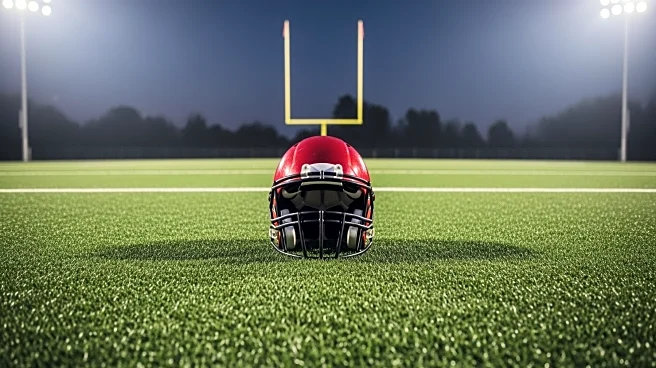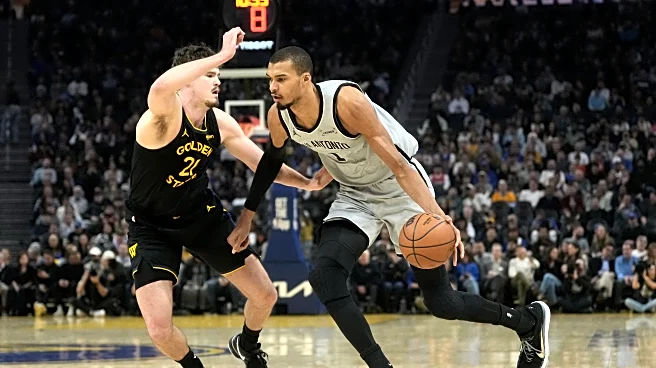What's Happening?
Kareem Hunt, running back for the Kansas City Chiefs, had a limited role in the team's 31-0 victory over the Las Vegas Raiders. Hunt carried the ball four times for a total of 18 yards, serving primarily
as a backup to Isiah Pacheco, who had eight carries. During the game, Hunt appeared to suffer a leg or ankle injury following a touchdown by Rashee Rice in the first quarter. Despite returning to the field, the Chiefs decided to reduce Hunt's workload, likely as a precaution due to the game's one-sided nature.
Why It's Important?
The Chiefs' decision to limit Kareem Hunt's participation highlights the team's depth in the running back position and their strategic approach to player health management. By reducing Hunt's workload, the Chiefs can ensure his availability for future games, which is crucial for maintaining their competitive edge in the NFL. This approach also underscores the importance of having a reliable backup like Isiah Pacheco, who can step up when needed. The Chiefs' ability to manage player injuries effectively could have significant implications for their performance in the remainder of the season.
What's Next?
Looking ahead, the Chiefs may continue to monitor Kareem Hunt's health closely, ensuring he is fit for upcoming games. The team's medical staff will likely assess Hunt's condition to prevent any long-term injuries. Additionally, the Chiefs might adjust their game strategy to further utilize their running back depth, depending on Hunt's recovery progress. This could involve increased opportunities for other players like Pacheco, ensuring the team remains adaptable and resilient in the face of potential injuries.
Beyond the Headlines
The Chiefs' handling of Kareem Hunt's situation reflects broader trends in the NFL regarding player health and safety. Teams are increasingly prioritizing long-term player welfare over immediate game performance, which could lead to shifts in how players are managed throughout the season. This focus on health could influence league-wide policies and practices, promoting a culture of safety and sustainability in professional football.









